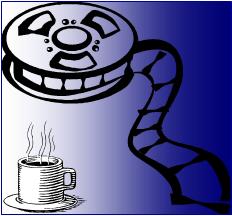

|
 |
Bad Lieutenant: Port of Call N. Orleans
|
Please go to the new Coffee Coaster site implemented more gracefully in Wordpress. This page: http://brianrwright.com/CoffeeCoasterBlog/?p=4402 |
Nicolas Cage ... Terence McDonagh
Eva Mendes ... Frankie Donnenfeld
Val Kilmer ... Stevie Pruit
Fairuza Balk ... Heidi
Xzibit ... Big Fate
Shawn Hatosy ... Armand Benoit
Jennifer Coolidge ... Genevieve
Tom Bower ... Pat McDonough
Vondie Curtis-Hall ... James Brasser
Brad Dourif ... Ned Schoenholtz
Denzel Whitaker ... Daryl
Terence McDonagh: Is this the same police force my father was in?
Aside from the fabulous featured performance by Nicolas Cage (Terence McDonagh: the 'bad lieutenant') this movie is an object lesson on how drug prohibition corrupts entire governments—from the sidewalks, to city hall, to the state capital. And the root corruptees are always the police, where the the day-to-day human contact comes into play, the laws must be enforced (or bought off), and the rubber meets the road. The buying-off is an essential part of the process... in reality, and in the movie.
The initial scenes have McDonagh and his mean-spirited assistant Stevie Pruit (Val Kilmer) assigned to help out a fellow police officer in New Orleans following the Katrina onslaught. They find the police officer's locker in an abandoned station, but have such an attitude that instead of looking for what they're supposed to retrieve, they seize an envelope that contains photos of the man's wife in sex poses. They're crudely joking about their find as they walk out of the locker area and onto a viewing floor of a lower level of jail cells. A Hispanic man has been left confined in one of the cells, and the rising water—full of snakes and all kinds of nasty stuff—is up to his chest. He pleads to be let out. McDonagh and Pruit make fun of him.
"Why should we let out a turd ball like you?"
And so on, just being typical awful cops and human beings. [I have to mention the following sequence to adequately present my review points, so consider this a *** minor spoiler alert ***.] But at the last minute Terence relents, jumps in the putrid water, and presumably saves the inmate. (Pruit was perfectly content to take bets on when the man would drown, so he's astonished when McDonagh defies all expectations and rescues.) We don't see what happens following the jump. *** close minor spoiler alert *** Instead we see the squad's doctor looking over Terence's X-rays, telling him to expect substantial back pain for the rest of his life. By doing his uncharacteristic good deed, McDonagh becomes majorly damaged goods.
So much so that he becomes hooked on Vicodin and Oxycodone, which if you look on Wikipedia you find they have an opium base. [Remember back a few years ago how quarterback Brett Favre admitted himself to the NFL's substance abuse program for becoming addicted to Vicodin. But these prescription drugs look attractive for people suffering emotional pain, as well.] McDonagh had previously used cocaine and other drugs to the point he secured an understanding with the supervisor of the police station's evidence impoundment area: "When the nose candy comes in from a bust, don't write it down in the log—or only write down a portion of it—then give what's left over to me." (Accompanied by a cash kickback to the supervisor.)
Now with the constant pain, ironically coming to him because of good behavior, Terence's body goes into overdrive on his painkiller substance cravings. He's basically an emotional and physical wreck, whose sole point of sanity is a "normal" romantic relationship with good-hearted prostitute Frankie Donnenfeld (Eva Mendes).
Enter the real world: a murder of a Senegalese family execution style in the black side of town. Whodunnit? Well we know, because it's a gang-type, turf-war act, it obviously it has something to do with the drug prohibition trade.[1] Another irony: based on his one or two publicized good deeds, Terence McDonagh has been promoted to detective lieutenant, and a no-nonsense captain has picked Terence to investigate the crime!
Despite his many problems, Terence is a smart guy and even a courageous-and-competent guy when it comes to figuring out real crimes. Further, because of his knowledge of the street, particularly the rampant drug prohibition industry (DPI) in New Orleans, he can get straight to the target. Never guess. The target is buried about as deep as you can go into the DPI, and in the process of tracking this gang leader, Terence runs further afoul of being a good lieutenant. In addition to Terence's DPI addictions—in fact, because of them—, he has an increasing need for cash, which he seeks mainly through illegal gambling. He hasn't been too successful with his bookie lately, and, to make matters worse, the captain is cleaning up the drug impoundment process. Terry cannot get his Vicodin, Oxy, or cocaine anymore. He turns to crack cocaine.
Terence even tries to branch out on his own. *** minor spoiler alert *** [Again I need to mention this one, because it makes my point on collateral damage of the DPI.] Because of his gambling debts, Terence is into some really sleazy, scary loan shark types—who threaten to kill him and his girlfriend. He finds a star college black athlete in the bad section of town making a marijuana score. Terence threatens to expose the athlete and derail his promising career unless the athlete will help him to throw a game. *** close minor spoiler alert *** So matters seem to get worse and worse as Terence spirals down the classic DPI descent into Hell.
All this going down while he's supposed to be bringing in the killers.
So what happens? I'm not going to spoil it... any further. [I really have only given the reader some pieces of behavior that indicate the theme of the movie. Hardly spoiling the plot.] You get the picture from the beginning that the film is dark, yet it weaves a constant thread black humor along with the darkness. And it isn't unbearably so, because you see this marvelous character drama affecting Terence and his girlfriend: there's some sympathy because deep down they are entirely decent even wonderful persons. Will they get through this mess? The writer is smart enough to give at least a sense of hope. By the way, Nicolas Cage won Best Actor from the Toronto Film Critics Association for this role. Fitting. And you'll want to see the movie through to the end.
I'm going to end with this observation: Bad Lieutenant is probably the best movie I've ever seen that shows so dramatically that the root of virtually all major social problems—real crime, poverty, corruption, destruction of children—especially in the American cities is DRUG PROHIBITION.
So it's a valuable movie didactically. And though often grim, enjoyable.
[1] I'm resisting the normal practice of referring to the millions of capital crimes each year as "drug-related," because in fact they have nothing to do with drugs as such. (When a free market exists in drugs—or even a reasonably regulated market—such substances decline in price to a point they attract no criminal monopolies maintained by force. People don't shoot one another in the beer business.) These crimes have everything to do with legal banishment of drugs: i.e. drug prohibition. Drugs are not a serious social evil. Drug prohibition is.
###
2010 August 12
Copyright © Brian Wright | The Coffee Coaster™
Bad Lieutenant | Nicholas Cage | Eva Mendes | drug addiction | WOD
 |
||||
| |